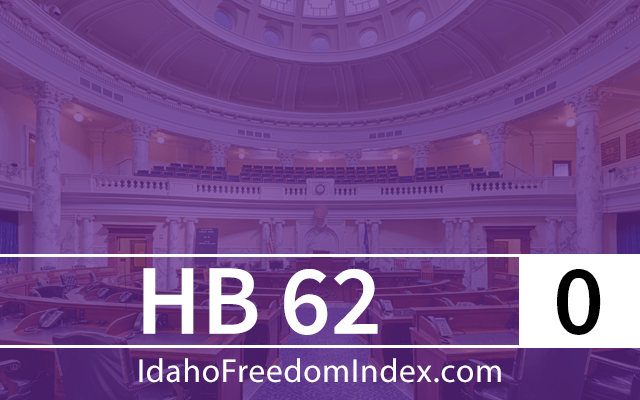


Bill description: HB 62 would extend the property tax reductions to the occupancy tax, which is assessed on new construction.
Rating: 0
Does it directly or indirectly create or increase any taxes, fees, or other assessments? Conversely, does it eliminate or reduce any taxes, fees, or other assessments?
For most homes, Idaho counties assess property tax each year. However, for newly constructed homes, an “occupancy tax” is assessed rather than the traditional property tax. The occupancy tax works by assessing the full value of the home, then pro-rating what the property tax assessment would be by the amount of the year in which the home was occupied. For example, if a family built a $250,000 home, and moved in on July 1st, in a location with a two percent property tax levy, the owner would have to pay $2,500 in occupancy tax ($250,000 home X 2% X .5 - for half a year).
HB 62 would fix an oversight in the increased taxation for new construction, restoring equity to new and old construction. There is no significant difference between property taxes and occupancy taxes, with the exception that occupancy taxes are assessed for a partial year. The fiscal note for HB 62 estimates that the total occupancy tax reduction for new construction would be $68,000 per year.
(+1)
Does it increase government redistribution of wealth? Examples include the use of tax policy or other incentives to reward specific interest groups, businesses, politicians, or government employees with special favors or perks; transfer payments; and hiring additional government employees. Conversely, does it decrease government redistribution of wealth?
The current reductions for property tax, which HB 62 would extend to the occupancy tax, are redistributive in nature. The circuit breaker exemption is available to low-income homeowners who are:
The other property tax reduction is for veterans who are 100 percent disabled with a service-connected disability.
(-1)


